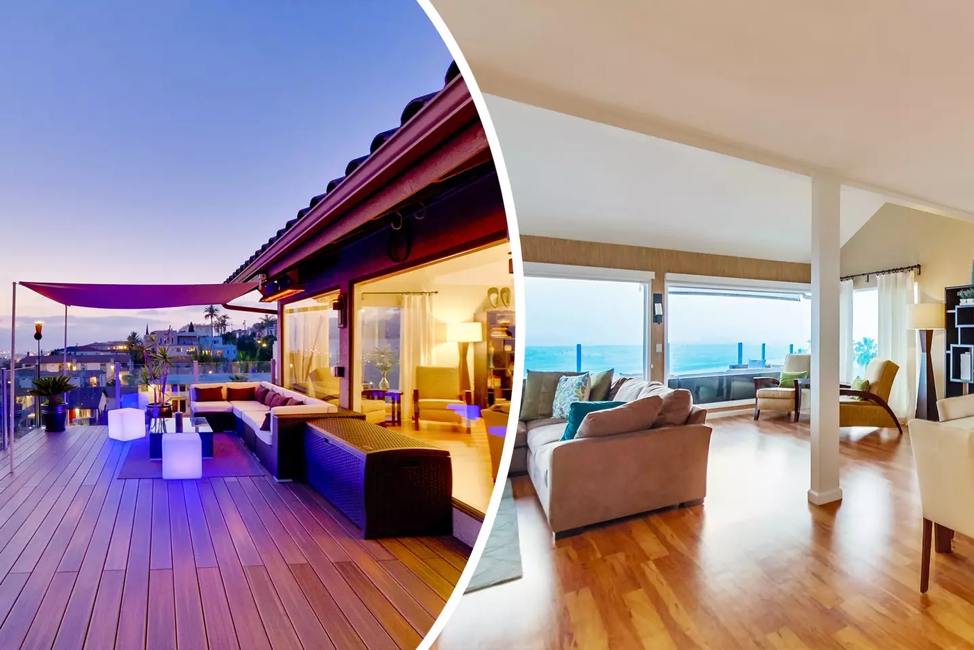 Main image source: Airbnb San Diego
The vacation rental industry is booming, and rental market growth numbers are a clear indication of this. According to the Smart Hosts Vacation Rental Forum, the vacation rental industry was valued at $100 billion in 2016. By 2019, they predict the industry will balloon to nearly $170 billion. In the USA alone, there’s been a 26% year-over-year growth. Platforms like Airbnb, VRBO, HomeAway, and FlipKey have made it easier than ever for property owners to create lucrative businesses through their real estate investments.
Whether you’re renting out your primary residence or have invested in real estate with the intent to rent, there’s no doubt that short and long-term vacation rentals can create a reliable stream of income. However, if you don’t take the necessary precautions, you risk losing out on your share of rental market.
It’s better to take a preventative approach to building out your listing than to wait for a mistake to happen to fix it. With that in mind, here are five mistakes you should never make with your rental property:
1) Pricing Your Property Wrong
It’s imperative that you price your rental property as accurately as possible. Pricing too low or too high can easily lead to a missed opportunity. One of the best ways to determine your pricing is to check out the competition. How much does it cost guests to rent similar properties in your market?
Evaluate a group of homes that share certain qualities and amenities, and price competitively without stooping too low. Platforms like Airbnb will suggest accurate pricing options based on data.
As you evaluate the market indepently, try to analyze properties that have at least ten reviews. This is because “newer” vacation rental listings tend to undercut their pricing to attract renters during their early operating stages. Properties with a handful of reviews are likely charging full market value, which provides you with an accurate number of what local properties are going for.
2) Doing The Bare Minimum
The key to running a successful rental property is to create a great rental experience. For example, just because your listing states that you provide basic amenities doesn’t mean it’s acceptable to offer cheap soaps and shampoos. A little effort goes a long way.
What was once considered “luxury” a decade ago has shifted dramatically, and now “luxury” is fairly standard, even for the smallest of vacation rental properties. To increase your chances of getting five-star reviews (the gold standard of vacation rentals and repeat business), you’ll have to wow your guests. Here are a few ideas for achieving this:
● Use quality products in your bathroom, like high-end soaps and shampoos
● Invest in plush towels, bathrobes, pillows, and linen
● Stock your fridge with useful basics, such as water bottles and condiments
● Include local maps and tips
● Take the time to create a welcome basket (preferably inspired by your local neighborhood)
Main image source: Airbnb San Diego
The vacation rental industry is booming, and rental market growth numbers are a clear indication of this. According to the Smart Hosts Vacation Rental Forum, the vacation rental industry was valued at $100 billion in 2016. By 2019, they predict the industry will balloon to nearly $170 billion. In the USA alone, there’s been a 26% year-over-year growth. Platforms like Airbnb, VRBO, HomeAway, and FlipKey have made it easier than ever for property owners to create lucrative businesses through their real estate investments.
Whether you’re renting out your primary residence or have invested in real estate with the intent to rent, there’s no doubt that short and long-term vacation rentals can create a reliable stream of income. However, if you don’t take the necessary precautions, you risk losing out on your share of rental market.
It’s better to take a preventative approach to building out your listing than to wait for a mistake to happen to fix it. With that in mind, here are five mistakes you should never make with your rental property:
1) Pricing Your Property Wrong
It’s imperative that you price your rental property as accurately as possible. Pricing too low or too high can easily lead to a missed opportunity. One of the best ways to determine your pricing is to check out the competition. How much does it cost guests to rent similar properties in your market?
Evaluate a group of homes that share certain qualities and amenities, and price competitively without stooping too low. Platforms like Airbnb will suggest accurate pricing options based on data.
As you evaluate the market indepently, try to analyze properties that have at least ten reviews. This is because “newer” vacation rental listings tend to undercut their pricing to attract renters during their early operating stages. Properties with a handful of reviews are likely charging full market value, which provides you with an accurate number of what local properties are going for.
2) Doing The Bare Minimum
The key to running a successful rental property is to create a great rental experience. For example, just because your listing states that you provide basic amenities doesn’t mean it’s acceptable to offer cheap soaps and shampoos. A little effort goes a long way.
What was once considered “luxury” a decade ago has shifted dramatically, and now “luxury” is fairly standard, even for the smallest of vacation rental properties. To increase your chances of getting five-star reviews (the gold standard of vacation rentals and repeat business), you’ll have to wow your guests. Here are a few ideas for achieving this:
● Use quality products in your bathroom, like high-end soaps and shampoos
● Invest in plush towels, bathrobes, pillows, and linen
● Stock your fridge with useful basics, such as water bottles and condiments
● Include local maps and tips
● Take the time to create a welcome basket (preferably inspired by your local neighborhood)
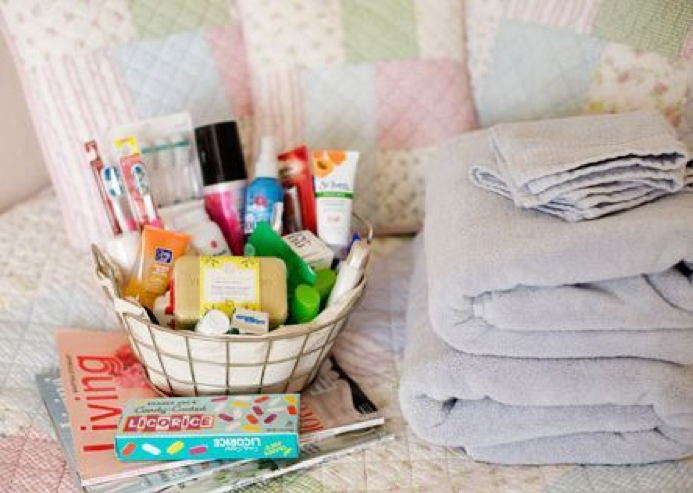 Source: Pinterest
3) Listing On Too Many Sites
If you’re in the early stages of renting your property, it may be tempting to start listing on every vacation rental platform possible. However, you should refrain from doing so. Too many listing across the Web can quickly become difficult to manage. This means that every time your listing changes in the slightest, you’ll have to update across several sites. It’s easy for something to slip through the cracks, and the last thing you want is for your home to be misrepresented on one of your selling channels.
Additionally, if you aren’t ultra-careful with your bookings, you might accidentally overbook and have to cancel on one of your guests. On platforms like Airbnb, canceling on a guest is shown publicly, and could make future potential guests deem you untrustworthy. To stay on the safe side, stick to two or three vacation rental platforms that have worked well for you. Over time, you may even notice that just one platform is all you need.
4) Taking Your Own Photos
Unless you’re a professional photographer, it’s best that you don’t take your own photos. Sure, the smartphones of today are more than capable of producing beautiful imagery than ever. But not only do professional cameras take mobile capabilities to the next level, but professionals understand how to frame a shot, edit it, and show off your vacation rental in the best light.
If you’re listing your property on Airbnb, you may be able to take advantage of free photography services. Otherwise, conduct a local Google search for nearby photographers. Not convinced on the power of professional photography? Take a look at the difference between these amateur and professional photos:
Source: Pinterest
3) Listing On Too Many Sites
If you’re in the early stages of renting your property, it may be tempting to start listing on every vacation rental platform possible. However, you should refrain from doing so. Too many listing across the Web can quickly become difficult to manage. This means that every time your listing changes in the slightest, you’ll have to update across several sites. It’s easy for something to slip through the cracks, and the last thing you want is for your home to be misrepresented on one of your selling channels.
Additionally, if you aren’t ultra-careful with your bookings, you might accidentally overbook and have to cancel on one of your guests. On platforms like Airbnb, canceling on a guest is shown publicly, and could make future potential guests deem you untrustworthy. To stay on the safe side, stick to two or three vacation rental platforms that have worked well for you. Over time, you may even notice that just one platform is all you need.
4) Taking Your Own Photos
Unless you’re a professional photographer, it’s best that you don’t take your own photos. Sure, the smartphones of today are more than capable of producing beautiful imagery than ever. But not only do professional cameras take mobile capabilities to the next level, but professionals understand how to frame a shot, edit it, and show off your vacation rental in the best light.
If you’re listing your property on Airbnb, you may be able to take advantage of free photography services. Otherwise, conduct a local Google search for nearby photographers. Not convinced on the power of professional photography? Take a look at the difference between these amateur and professional photos:
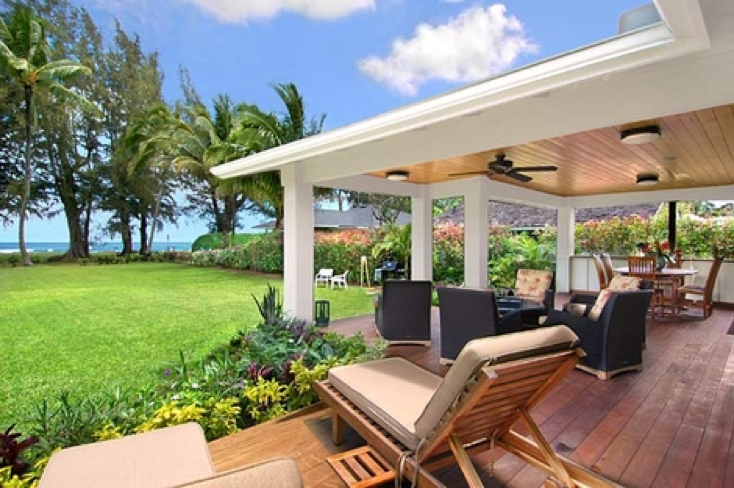 Source: Real Estate Photography
Source: Real Estate Photography
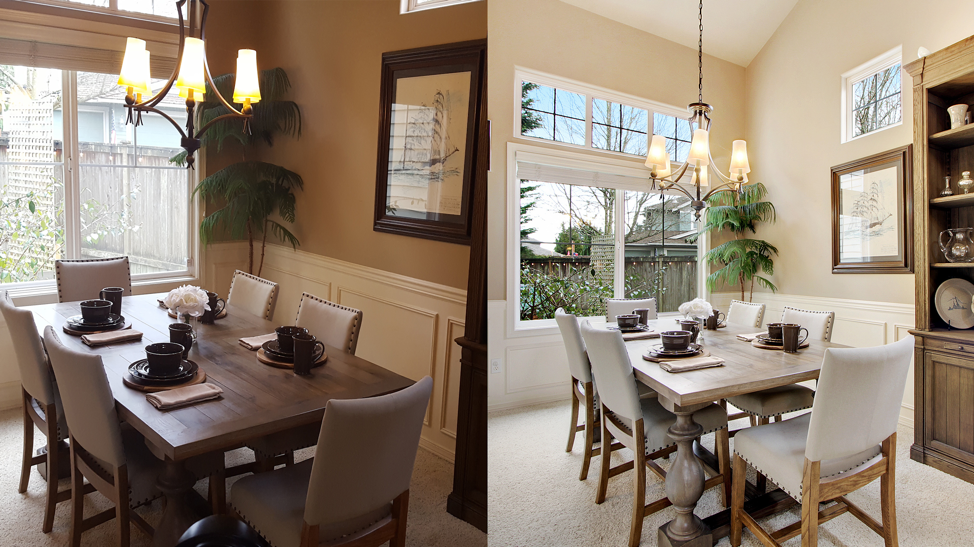 Source: The Memory Mill
Source: The Memory Mill
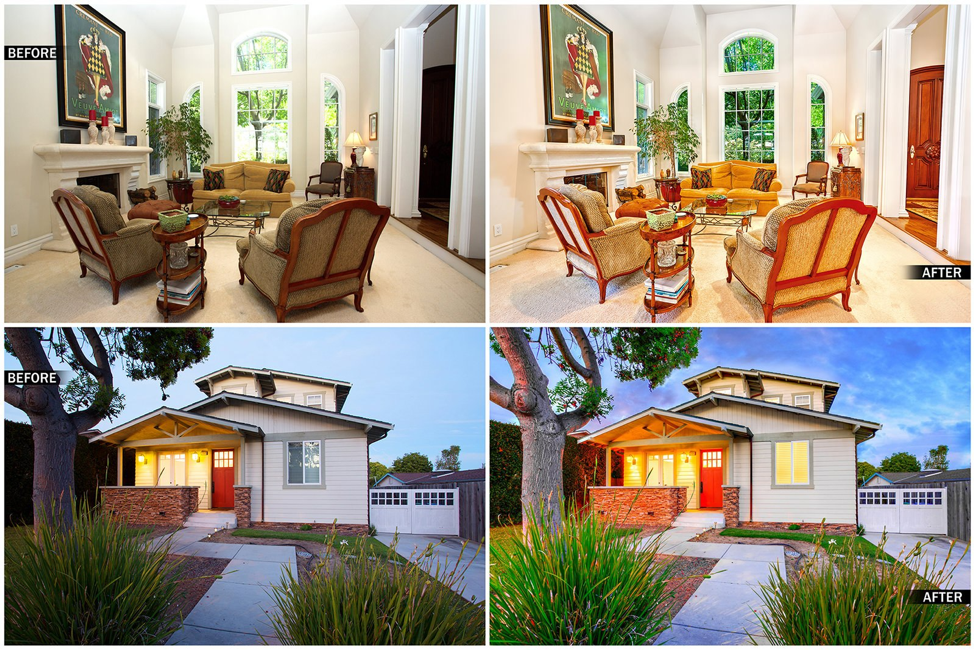 Source: Tony Mwendi Kinkela
5) Setting The Same Price Year Round
Perhaps you’ve spent a bit of time perfecting your price, and want to leave it alone for the rest of the year. This might sound good in theory, but isn’t smart in practice. As a property owner, you should stay away from flat pricing year-round. Here are some reasons you’d want to increase your prices:
● Holiday seasons
● Weekend getaways
● Peak season in your local area (for example, winter might be a low season in Virginia Beach, but high season in Aspen, Colorado)
● Festivals and various other events
On the other hand, you might consider lowering your price during the off-season, to keep your property competitively priced when there’s not much happening in the area.
Source: Tony Mwendi Kinkela
5) Setting The Same Price Year Round
Perhaps you’ve spent a bit of time perfecting your price, and want to leave it alone for the rest of the year. This might sound good in theory, but isn’t smart in practice. As a property owner, you should stay away from flat pricing year-round. Here are some reasons you’d want to increase your prices:
● Holiday seasons
● Weekend getaways
● Peak season in your local area (for example, winter might be a low season in Virginia Beach, but high season in Aspen, Colorado)
● Festivals and various other events
On the other hand, you might consider lowering your price during the off-season, to keep your property competitively priced when there’s not much happening in the area.





